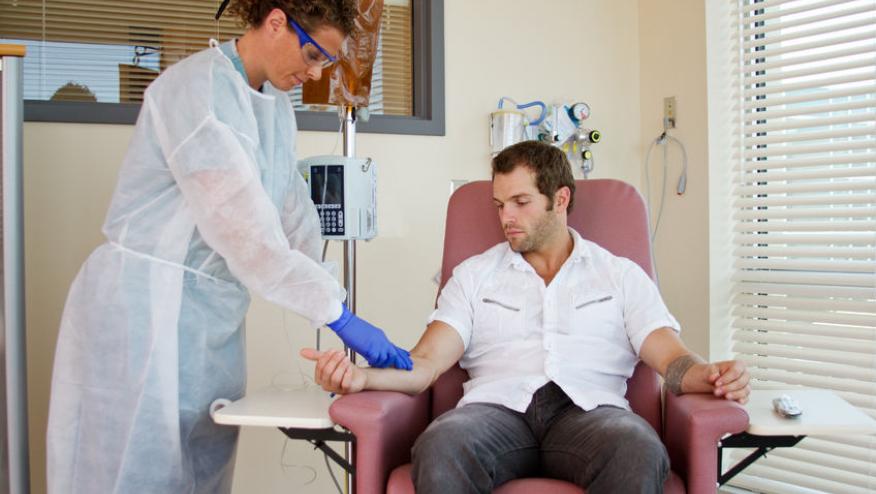CD19 CAR T-Cell Therapy in Autoimmune Disease Save

The NEJM has published the results of CD19 B cell depletion (by CAR-T cell therapy) in autoimmune disease patients, demonstrating it to be feasible, safe, and efficacious.
The rationale to CD19 CAR-T cell transfer is to reset aberrant autoimmunity via deep depletion of B cells with the hope of achieving sustained drug-free remission.
A total of 15 patients with severe refractory SLE (8 patients), idiopathic inflammatory myositis (IIM) (3 patients), or systemic sclerosis (4 patients) were treated with a single infusion of CD19 chimeric antigen receptor (CAR) T cells after preconditioning with fludarabine and cyclophosphamide. Primary outcomes were remission as determined by DORIS (SLE), ACR–EULAR major clinical response, and EUSTAR (SSc) activity index at 2 years.
All the patients failed at least 2 previous immune-suppressive treatments (median, 5; range, 2 to 14). At entry SLE patients had a median SLEDAI-2K score of 13 (interquartile range, 9.3 to 16) and biopsy proven glomerulonephritis (grade III or IV). All IIM and SSc patients had interstitial lung disease with reduced forced vital capacity (median, 53%). IIM patients had active muscle involvement (median creatine kinase level, 4298 U per liter) and SSc patients had a median modified Rodnan skin score of 25.5). Prior therapies included B-cell–depleting agents (n=8), and cyclophosphamide (n=9).
After a median 15 months of follow up the mean duration of B-cell aplasia was 112±47 days. SLE specific autoantibodies becam undetectable. While antibody-producing plasmablasts and immunoglobulins decreased, a substantial proportion of serum immunoglobulins, such as vaccination-related antibodies, were not eliminated.
All Immunosuppressive therapy was completely stopped at the start of CAR-T cell therapy and remained off during the followup period. Dramatic clinical responses were seen with all SLE patients achieving DORIS remission, all IIM patients having an ACR–EULAR major clinical response, and all systemic sclerosis patients decreasing their EUSTAR activity index.
Grade 1 cytokine release syndrome occurred in 10 patients. One patient each had grade 2 cytokine release syndrome, grade 1 immune effector cell–associated neurotoxicity syndrome, and pneumonia that resulted in hospitalization.
The impressive clinical efficacy and reasonable safety of CD19 CAR T-cell treatment warrants further controlled clinical trials.










If you are a health practitioner, you may Login/Register to comment.
Due to the nature of these comment forums, only health practitioners are allowed to comment at this time.